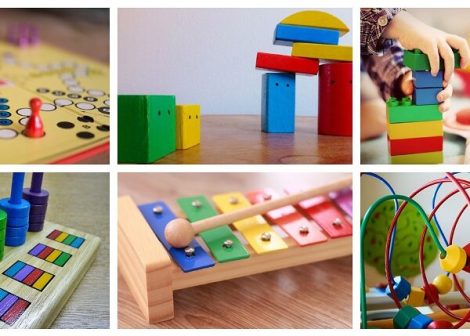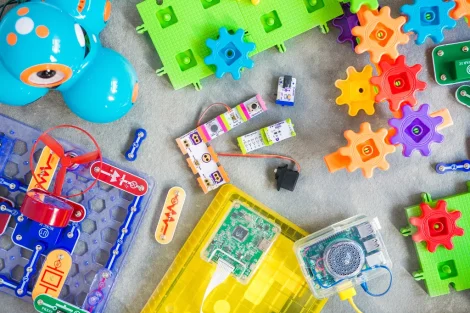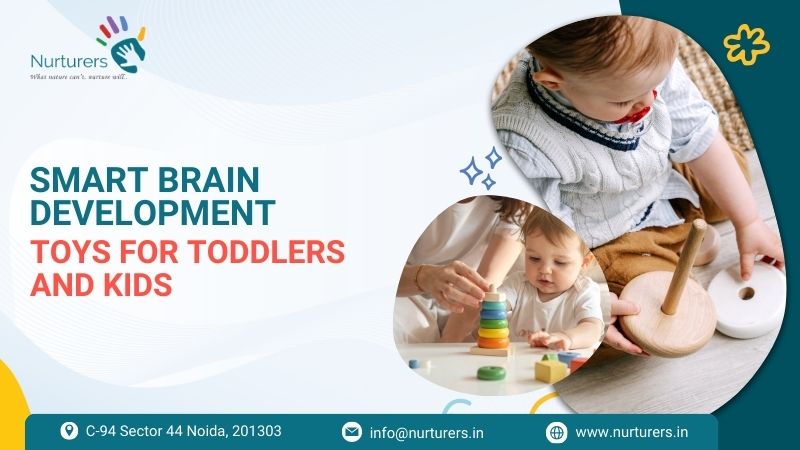Smart brain development toys play a powerful role in shaping the early growth of toddlers and young children. During the first few years, a child’s brain develops rapidly, creating neural connections that support learning, speech, memory, problem-solving, and emotional understanding. The right toys stimulate these abilities by encouraging hands-on exploration, curiosity, and active engagement. From sensory toys that improve touch and visual processing to puzzles, blocks, and activity games that enhance logical thinking, every age-appropriate toy strengthens specific developmental skills.
These toys also help boost fine motor skills, hand-eye coordination, creativity, and early language abilities. When children interact, build, experiment, and solve challenges through play, their cognitive foundation becomes stronger and more adaptable. Smart brain development toys are not just fun; they are essential tools that support holistic growth and lifelong learning in a natural, playful, and enjoyable way.
Why Smart Toys Matter for Early Brain Development?
Children learn by exploring the world around them. Toys act as tools that guide this exploration in the right direction. When toddlers and kids interact with toys, they develop problem-solving abilities, memory, language skills, emotional understanding, and decision-making. For younger children, especially toddlers, toys for brain development 1 2 years ensure that the learning experience matches their developmental stage. Smart toys offer structured challenges that help children:
- Strengthen neural pathways
- Improve sensory processing
- Build fine and gross motor skills
- Learn cause-and-effect logic
- Express emotions and creativity
- Enhance focus and concentration
When combined with parent interaction, these toys become powerful tools for holistic development.
Types of Brain Development Toys and Their Benefits
Each category of toy supports a different area of brain growth. Here are the most effective brain development toys for toddlers and kids:
1. Sensory Development Toys
Sensory toys help children understand sights, sounds, textures, and movements. Items like sensory boards, textured balls, rattles, light-and-sound toys, and soft fabric books activate multiple senses at once. Sensory play builds strong neural pathways and helps children with attention, emotional regulation, and early communication.
2. Building, Stacking, and Construction Toys
These toys include blocks, magnetic tiles, wooden stackers, and interlocking bricks. They develop spatial awareness, math readiness, balance, creativity, and imagination. When children stack and balance the pieces, their problem-solving and motor skills naturally improve.
3. Puzzle, Sorting, and Matching Toys
Puzzles, shape sorters, and matching cards improve logical reasoning, shape recognition, and hand-eye coordination. As children progress from basic puzzles to more advanced ones, their patience, focus, and memory expand significantly.
4. Pretend Play and Role-Play Sets
Pretend play toys such as kitchen sets, doctor kits, dolls, animal figures, and toolkits help children understand real-life situations. These toys boost emotional intelligence, vocabulary building, social skills, and imagination
5. Musical and Rhythm Toys
Instruments like xylophones, drums, shakers, and keyboards improve auditory processing, rhythm learning, hand coordination, and memory. Music-based brain stimulation supports language development and creativity too.
6. STEM and Learning Toys
STEM toys include coding kits, number games, robotics kits, mechanical models, and science experiment sets. These toys build critical thinking, sequencing, logic, and early problem-solving habits that will benefit children throughout school.

Best Brain Development Toys for Ages 1–2 Years
At this age, children learn by touching, tasting, banging, dropping, and exploring everything. Proper toys for brain development 1 2 years must be safe, soft, colorful, and interactive. Recommended toys include:
- Shape sorters and ring stackers
These toys help toddlers recognize shapes, understand size differences, practice hand–eye coordination, and learn basic problem-solving. Stacking and sorting also build early logical thinking and fine motor control. - Push-and-pull toys
These toys strengthen leg muscles, improve balance, and boost confidence while walking. They also help toddlers understand direction, speed, and cause-and-effect as the toy moves with them. - Soft blocks and stacking cups
Soft blocks encourage building, knocking, and rebuilding, which improves creativity and motor skills. Stacking cups help toddlers learn size comparison, balancing skills, and basic early math concepts like “big and small.” - Sensory boards
These boards include zippers, textures, switches, buttons, and Velcro that enhance tactile learning. Sensory boards support finger strength, curiosity, and cognitive processing through multi-sensory engagement. - Activity cubes
A single cube offers multiple activities like bead mazes, sliders, number panels, and gears. These toys keep toddlers engaged for longer and develop concentration, problem-solving, and early coordination skills. - Musical toys
Drums, xylophones, shakers, and keyboards help children recognize sounds, develop rhythm, improve listening skills, and support early language development through repetitive sound patterns.
These toys support early talking, strong hand movement, improved focus, and early understanding of shapes, colors, and sounds.
Brain Development Games for Preschool and School-Age Children
As children grow older, their brain needs more challenging tasks to stimulate cognitive growth. The best brain exercises, including brain development games, are designed to strengthen logical reasoning, planning, memory, problem-solving, and decision-making abilities in a fun and engaging way.Some useful brain development games include:
- Memory matching cards
These cards improve short-term memory, concentration, and pattern recognition. Children enjoy the challenge of remembering card positions while developing recall skills that form the foundation for learning and attention. - Board games like Ludo, Snakes & Ladders, Chess (for older kids)
Board games enhance strategic thinking, planning, social skills, and patience. Chess, in particular, strengthens problem-solving abilities, logical reasoning, and foresight, while simpler board games teach turn-taking, counting, and decision-making. - Pattern recognition games
These games encourage children to identify and predict sequences, enhancing analytical thinking, observation skills, and early math abilities. Recognizing patterns also strengthens cognitive flexibility and logical reasoning. - Sequencing and sorting games
Games that involve arranging objects in a specific order or sorting by color, size, or shape help children develop organizational skills, attention to detail, and step-by-step thinking. - Tangram puzzles
Tangrams improve spatial awareness, geometric understanding, and visual-spatial reasoning. By manipulating shapes to form pictures or objects, children enhance creativity, problem-solving, and fine motor coordination.
When used regularly, these games help children develop problem-solving skills, patience, focus, and strategic thinking.

Supporting Brain Development Beyond Toys
Toys alone cannot build the child’s brain. Parents play a vital role in creating a rich learning environment. Along with brain development food, proper sleep, stress-free surroundings, and meaningful interactions contribute significantly to brain growth. Parents can support brain development by:
- Talking and reading to the child daily
- Encouraging free play and creativity
- Playing with the child to improve bonding
- Limiting screen time
- Offering healthy foods that nourish the brain
- Encouraging outdoor activities and movement
- Ensuring a consistent routine
Small daily actions create a long-lasting impact on the child’s intelligence, emotional awareness, and behavior.
Why Choose Nurturers for Cognitive and Early Childhood Development?
At Nurturers, we understand that every child has unique learning needs. Our expert team of therapists, psychologists, and special educators guide parents in selecting the right toys, games, and early intervention strategies. Whether a child needs sensory support, speech stimulation, motor development, or cognitive strengthening, Nurturers offers personalized programs that promote overall growth.
We help parents choose toys according to age, developmental requirements, and learning goals so their child receives the best possible support during the most critical years of life.
FAQs
1. Which part of the human brain is the most developed?
The cerebral cortex—especially the frontal lobe—is the most advanced and most developed part of the human brain. It controls decision-making, problem-solving, planning, emotions, and higher-level thinking functions.
2. How to develop brain power?
Brain power increases through regular mental exercises, brain development games, reading, physical activity, nutritious food, good sleep, and constant learning. Engaging children in creative play and smart toys further enhances cognitive growth.
3. How to improve baby brain development during pregnancy?
Pregnant mothers can support fetal brain development by eating balanced brain development food, taking prenatal vitamins with folic acid, consuming omega-3 rich foods, avoiding stress, staying hydrated, sleeping well, and following regular prenatal check-ups.

